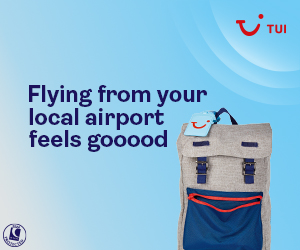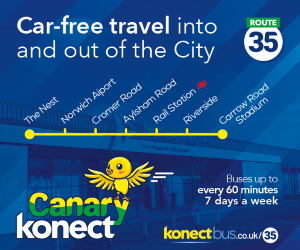- 30 UK airports assessed on how well they support passengers with a disability or reduced mobility
- New CAA report shows that overall UK airports provide a high quality of assistance
- 10 airports rated ‘very good’ and only one airport was rated poor
- CAA committed to driving improvements through its new performance framework, the first of its kind in Europe, which will help ensure consistently high quality assistance at UK airports
- Findings supported by CAA’s recent consumer research, which reveals 85 per cent of passengers who use assistance are either satisfied or very satisfied with their experience
The quality of assistance airports provide to disabled people and those with reduced mobility is the focus of a new performance report by the UK Civil Aviation Authority.
Under European regulations, airports and airlines must provide help and support to disabled passengers and those with reduced mobility, to better enable this group of people to travel by air.
During 2015/2016 the CAA established a new performance framework and worked with 30 of the busiest UK airports to assess each of them against a number of key measures.
These measures included:
- How long passengers have to wait for assistance (both departure and arrival)
- The levels of passenger satisfaction with the assistance provided, gathered from CAA passenger surveys and airports’* own surveys
- How much consultation airports had with disability organisations regarding assistance services, what consultation methods were used, if issues were addressed and what, if any, action was taken
The new framework has been introduced by the CAA in order to ensure there is a consistent and high quality service for disabled passengers and those with reduced mobility across UK airports. It will also help the CAA identify dips in performance so that it can act quickly and work with airports to ensure that the issues are addressed effectively. If necessary the CAA can also take enforcement action to ensure services are improved for passengers.
All 30 airports have now been assessed and given a performance rating of either very good, good, taking steps, or poor. Airports with performance ratings very good or good, and those that have ‘taken steps’ to improve performance, account for 97 per cent of all travellers that use the assistance service at airports.
Table of airport performance
|
Aberdeen |
|||
|
Bournemouth |
|||
|
Belfast International |
Cardiff |
||
|
Belfast City |
Exeter |
||
|
City of Derry |
Doncaster Sheffield |
||
|
Humberside |
Birmingham |
Glasgow Prestwick |
|
|
London Southend |
Bristol |
Inverness |
|
|
Manchester |
East Midlands |
Leeds Bradford |
|
|
Newcastle |
Glasgow |
London City |
|
|
Newquay Cornwall |
Liverpool |
London Heathrow |
|
|
Norwich |
London Gatwick |
London Luton |
|
|
Southampton |
London Stansted |
Sumburgh |
Edinburgh |
|
Very Good |
Good |
Taking Steps |
Poor |
Note: The CAA’s full report ‘Accessible air travel: Airport performance report 2015/16’, provides a full explanation of how each ranking is defined.
The CAA requires each airport make its performance public and this, combined with the CAA’s annual report comparing their performance, will help drive the right behaviours and ensure that delivering a high quality assistance service to this group of travellers is a priority for each airport
The CAA’s Head of Consumer Enforcement, Matthew Buffey, said:
“Our research shows passenger satisfaction with special assistance at UK airports is high with 85 per cent satisfied or very satisfied.
“However, high standards are not always universal, and occasionally things go wrong for disabled people and those with reduced mobility. These passengers are very much dependent on airport staff providing the appropriate assistance so it’s a really important task for airports to get right.
“We have worked closely with airports to help drive improvements and provide practical guidance where needed. Overall we are pleased that performance has generally been good, with some excellent examples of airports supporting their passengers who have mobility needs.
“Providing a consistently high quality assistance service to disabled people and those with reduced mobility should be a top priority for the senior management of UK airports, and we do not expect standards to slip.
“To ensure that this is the case, we will continue to monitor performance standards and, where any issues do arise, take action quickly to protect the rights of disabled people and those with reduced mobility.”
Passenger satisfaction
A recent consumer survey, carried out by Ipsos MORI on behalf of the CAA, looked at behaviours, attitudes, experiences and satisfaction levels in relation to air travel amongst a nationally representative sample of passengers.
The report found the following satisfaction levels among disabled people and those with a reduced mobility.
- Overall satisfaction with the most recent air travel experience was 87 per cent for passengers with a disability or reduced mobility, which compares with 90 per cent satisfaction for passengers overall
- In addition, those who requested special assistance have a high level of satisfaction with the service they use, with 85 per cent satisfied overall and 57 per cent very satisfied
- However, only 36 per cent of people with a disability or reduced mobility have travelled in the last 12 months, compared with 58 per cent for those without a disability.
- In addition 10 per cent of people with a disability or reduced mobility have never flown, compared to six per cent overall. Among reasons identified for not flying include the passengers’ disability or health condition (36 per cent of those with a disability or reduced mobility who have never flown), concerns with airport access (6 per cent) and fear of flying (15 per cent).
The full Ipsos MORI report, will be published by the CAA shortly.
To read the CAA’s Accessible air travel: Airport performance report 2015/16 go to www.caa.co.uk/CAP1438
*Under the new performance framework airports are required to carry out passenger satisfaction surveys with PRMs, however in some cases airports did not do this, and this would be reflected in their assessment and rating.
END
Media Enquiries
For further information call the CAA Press Office on 0207 453 6024.
Notes to Editors
- The CAA is the UK’s specialist aviation regulator. Its activities include: making sure that the aviation industry meets the highest technical and operational safety standards; preventing holidaymakers from being stranded abroad or losing money because of tour operator insolvency; planning and regulating all UK airspace; and regulating airports, air traffic services and airlines and providing advice on aviation policy.
- In 2015 more than 254 million passengers passed through UK airports, of which 2.7 million were people with a disability or reduced mobility (PRM).
- These passengers are legally entitled to free special assistance when travelling by air and this may include help when travelling through an airport, boarding or disembarking an aircraft and during a flight. To ensure passengers get the help they need, they are advised to inform their airline of the specific assistance they require, at least 48 hours prior to take off.
- The CAA is the body in the UK appointed to ensure that those that need this assistance receive it, and it is a strategic priority for the CAA that disabled passengers and those with mobility restrictions, including non-visible conditions, know that a high standard of help and assistance is available at the airport and on board and that they are confident to fly
- European Regulation (EC) 1107/2006 provides rights for passengers with disabilities and reduced mobility when travelling by air.
- These rights apply when you fly from a European Union (EU) airport.
- Flights to EU airports are also covered provided that you are travelling with a EU registered carrier.
- Airport operators and airlines must provide assistance free of charge if you have a disability or reduced mobility and require help to complete your journey.
- The Civil Aviation (Access to Air Travel for Disabled Persons and Persons with Reduced Mobility) Regulations 2014, was laid before Parliament on October 27 2014, and came into effect on Dec 1. The statutory instrument can be found here.
Technical note
- Data from the consumer research conducted by Ipsos MORI is based on a survey conducted among 3,507 adults across the United Kingdom. 3,007 participants took part online and 500 participants by telephone. All interviews were conducted between 23rd February – 15th March 2016. The consumer survey data is weighted to the known population proportions of UK adults by age, gender, home region and working status.










